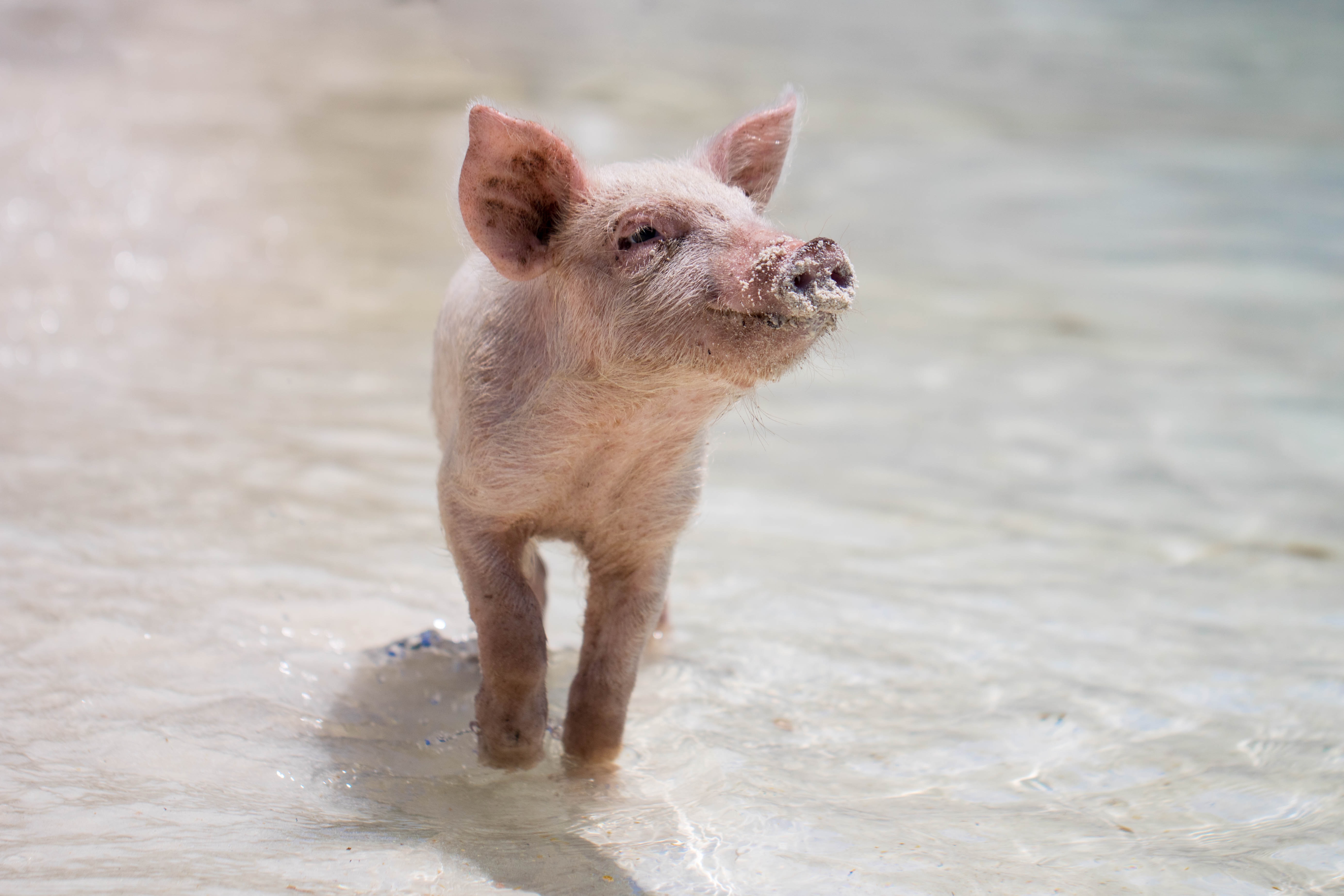Voter-approved ballot measure to restrict sales of pork from sows kept in gestation crates remains in effect at all food sales outlets in Massachusetts.
Boston—The United States District Court for the District of Massachusetts rejected claims from a Missouri-based factory farming corporation that Question 3, a 2016 voter-approved law that prohibited statewide the sale of pork raised in cruel, cramped confinement, was in violation of federal law. The pork companies’ defeat is just the latest in a string of courtroom losses for the national factory farming lobby. Animal Wellness Action and the Center for Humane Economy filed an amicus brief in support of Question 3 and the state’s position with the federal court.
Last May, the U.S. Supreme Court rejected an industry attempt to short-circuit California’s Proposition 12, which was modeled after Question 3 in Massachusetts.
In this latest case, Triumph Foods and a handful of other plaintiffs claimed that Massachusetts was preempted from enacting its sales prohibition by the Federal Meat Inspection Act. In rejecting that argument, District Court Judge William G. Young stated that the Question 3 “seeks to prevent the sale of pork raised in inhumane conditions, without concern for whether that meat is safe to eat (in other words, an otherwise healthy pork product could be noncompliant with the Act, not because it is considered unhealthy, but because the policy preferences of the Massachusetts voters demand it not be eligible for sale).”
“Massachusetts voters said no to extreme confinement in a landslide vote nearly eight years ago, and the federal courts have again upheld their right to reject this form of institutionalized cruelty to animals,” said Wayne Pacelle, president of Animal Wellness Action and a key architect of Question 3. “Commonwealth voters don’t want to purchase meat from animals immobilized in cages. What part of this anti-cruelty decision-making by its consumers does the pork industry not understand?”
Voters gave Question 3—which forbids gestation crates for sows, battery cages for hens, and small crates for veal calves, and the sale of meat from animals in those settings, no matter where they are raised—majorities in a stunning 348 of 351 towns in the Commonwealth and an extraordinary 78 percent supermajority statewide.
In May 2023, the Supreme Court of the United States upheld a nearly identical measure, California Proposition 12, as constitutional and a proper exercise of state authority. Prop 12 was modeled after Question 3, so the high court’s ruling in NPPC v. Ross left Question 3 intact as well.

The industry’s determination to circumvent these court rulings and the will of the people was further reflected in recent legislation introduced in Congress where the EATS Act, S. 2019 and H.R. 4417 will not only gut Question 3 but also many other state agricultural laws and regulations. The bill would nullify any state or local law that places any kind of standard, regardless of its impact, on agricultural exchange, whether grounded on concerns about animal welfare, food safety, chemicals, agricultural pests, or worker safety.
“The court’s ruling should make it plain that no slaughterhouse or processor—whether located in Massachusetts or not—can peddle pork from sows kept in extreme confinement in the Commonwealth,” Pacelle said. “The industry has come up with far-fetched legal claims time and again, and the case should signal to factory farming interests that they’ve reached the end of the road with groundless legal claims.”
Many major U.S. companies and restaurants, including McDonald’s and Costco, have already promised their consumers that they will forbid in relatively short order sourcing pork or eggs from operations that confine the sows or hens in extreme ways. The Supreme Court ruling upheld Prop 12, Question 3, and other similarly constructed state laws, and it is time for the pork industry to comply with these legal and corporate standards and stop trying to produce a product that comes from a fundamentally inhumane production practice.
ABOUT
Animal Wellness Action is a Washington, D.C.-based 501(c)(4) whose mission is to help animals by promoting laws and regulations at federal, state and local levels that forbid cruelty to all animals. The group also works to enforce existing anti-cruelty and wildlife protection laws. Animal Wellness Action believes helping animals helps us all. X: @AWAction_News
The Center for a Humane Economy is a Washington, D.C.-based 501(c)(3) whose mission is to help animals by helping forge a more humane economic order. The first organization of its kind in the animal protection movement, the Center encourages businesses to honor their social responsibilities in a culture where consumers, investors, and other key stakeholders abhor cruelty and the degradation of the environment and embrace innovation as a means of eliminating both. The Center believes helping animals helps us all. X: @TheHumaneCenter


Join the conversation!